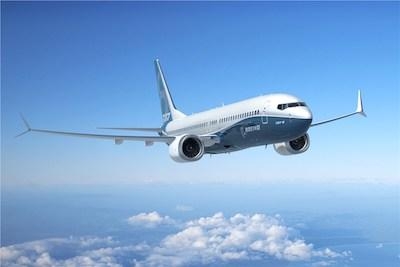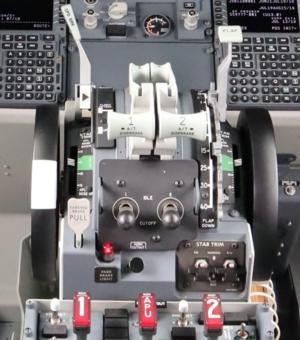Former Pilot Had Warned The Company About Potential Issues With The MCAS
Boeing late last week alerted the Department of Transportation to the existence of instant messages between two Boeing employees, characterizing certain communications with the FAA during the original certification of the 737 MAX in 2016. Boeing explained to the Department that it had discovered this document some months ago.

The communications dealt with the MCAS. In 2016, Mark Forkner, Boeing’s former chief technical pilot for the 737, said in messages to a colleague that there were problems with the MCAS "running rampant" in the simulator, according to a report from CNBC.
The Department immediately brought this document to the attention of both FAA leadership and the Department’s Inspector General.
"The FAA finds the substance of the document concerning. The FAA is also disappointed that Boeing did not bring this document to our attention immediately upon its discovery. The FAA is reviewing this information to determine what action is appropriate," the agency said in a statement posted online.
"The FAA has shared this document with the appropriate Congressional committees and plans to provide additional related documents.
"The FAA is following a thorough process, not a prescribed timeline, for returning the Boeing 737 MAX to passenger service. The agency will lift the grounding order only after we have determined the aircraft is safe."
Boeing released a statement Sunday indicating that the company regrets the concern caused by the release Friday of a Nov. 15, 2016 instant message involving Mr. Forkner. "And we especially regret the difficulties that the release of this document has presented for the U.S. Federal Aviation Administration and other regulators," the company said in the statement.
"It is unfortunate that this document, which was provided early this year to government investigators, could not be released in a manner that would have allowed for meaningful explanation. While we have not been able to speak to Mr. Forkner directly about his understanding of the document, he has stated through his attorney that his comments reflected a reaction to a simulator program that was not functioning properly, and that was still undergoing testing. We are continuing to investigate the circumstances of this exchange, and are committed to identifying all the available facts relating to it, and to sharing those facts with the appropriate investigating and regulatory authorities.

"Boeing engaged in an extensive process with the FAA to determine pilot training requirements for the 737 MAX 8. This process was a complex, multiyear effort that involved a large number of individuals at both Boeing and the FAA. This effort itself was just a part of a much larger regulatory process for the design, development and certification of the 737 MAX 8.
"In that regulatory process, Boeing informed the FAA about the expansion of the Maneuvering Characteristics Augmentation System (MCAS) to low speeds, including by briefing the FAA and international regulators on multiple occasions about MCAS’s final configuration. The process also included evaluation of MCAS in low-speed configurations for both training and certification. The simulator software used during the Nov. 15 session was still undergoing testing and qualification and had not been finalized, but it, too, provided for MCAS operation at low speed. Separately, a low-speed version of MCAS was installed on the airplanes used for training-related flight testing that the FAA administered in August 2016. And FAA personnel also observed the operation of MCAS in its low-speed configuration during certification flight testing, beginning in August 2016 and continuing through January 2017," the company said.
"We understand entirely the scrutiny this matter is receiving, and are committed to working with investigative authorities and the U.S. Congress as they continue their investigations.
"We are deeply saddened and have been humbled by these accidents, and are fully committed to learning from them. We have developed improvements to the 737 MAX that will ensure that accidents like these can never happen again, and are committed to continuing to work closely with the FAA and global regulators to ensure the MAX’s safe return to service."
(Image from file)
 ANN's Daily Aero-Term (04.24.24): Runway Lead-in Light System
ANN's Daily Aero-Term (04.24.24): Runway Lead-in Light System ANN's Daily Aero-Linx (04.24.24)
ANN's Daily Aero-Linx (04.24.24) Aero-FAQ: Dave Juwel's Aviation Marketing Stories -- ITBOA BNITBOB
Aero-FAQ: Dave Juwel's Aviation Marketing Stories -- ITBOA BNITBOB Classic Aero-TV: Best Seat in The House -- 'Inside' The AeroShell Aerobatic Team
Classic Aero-TV: Best Seat in The House -- 'Inside' The AeroShell Aerobatic Team Airborne Affordable Flyers 04.18.24: CarbonCub UL, Fisher, Affordable Flyer Expo
Airborne Affordable Flyers 04.18.24: CarbonCub UL, Fisher, Affordable Flyer Expo




